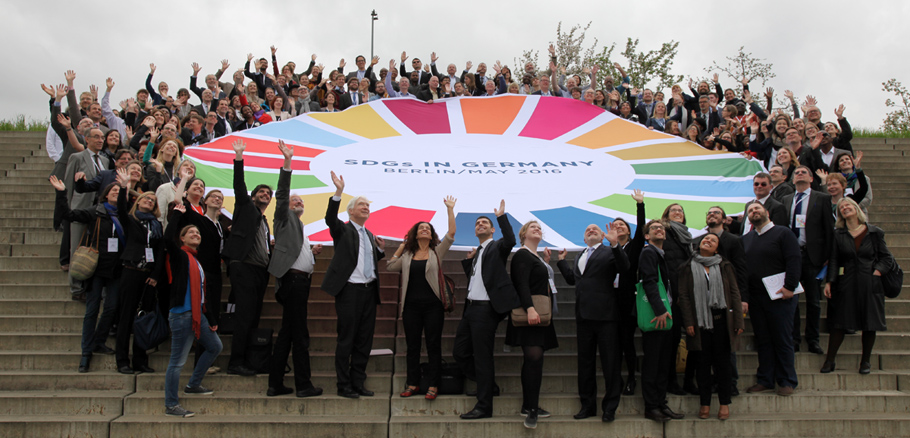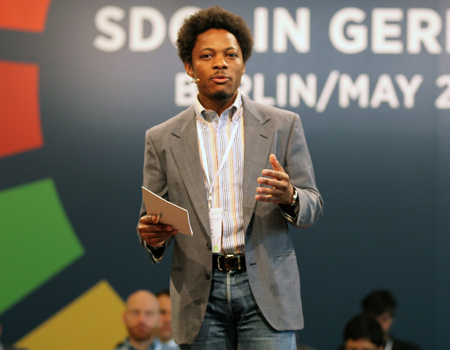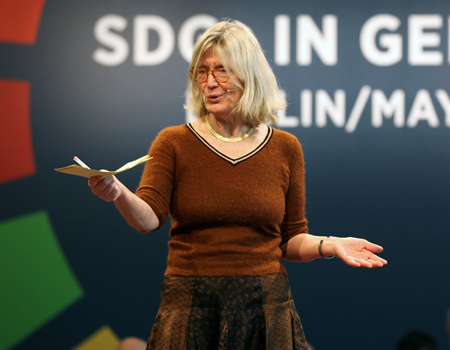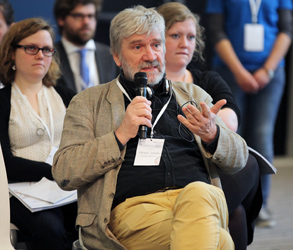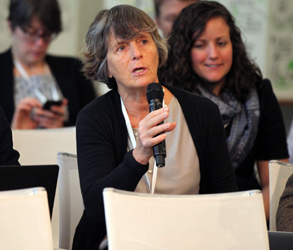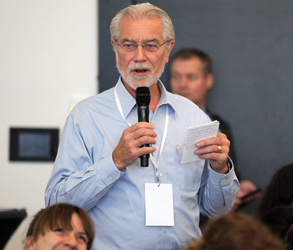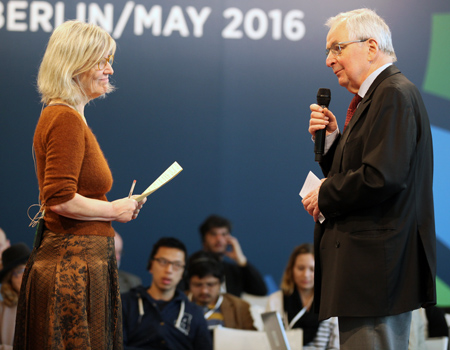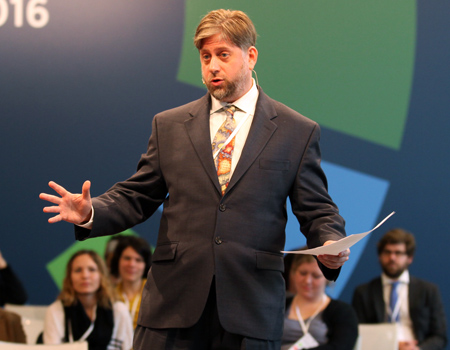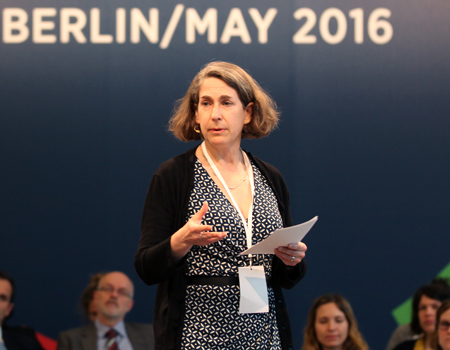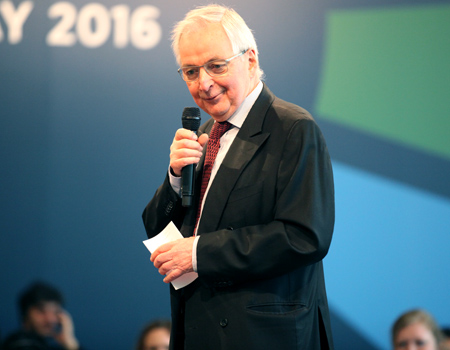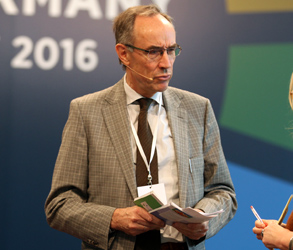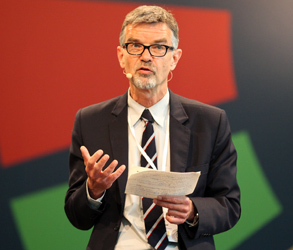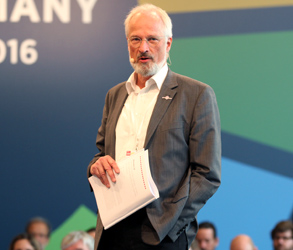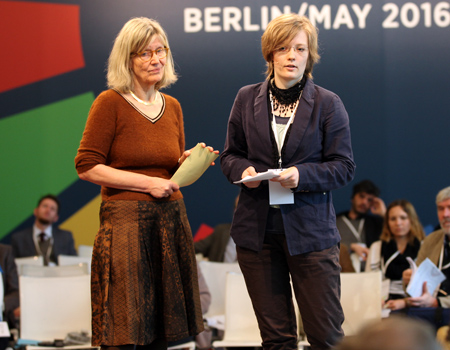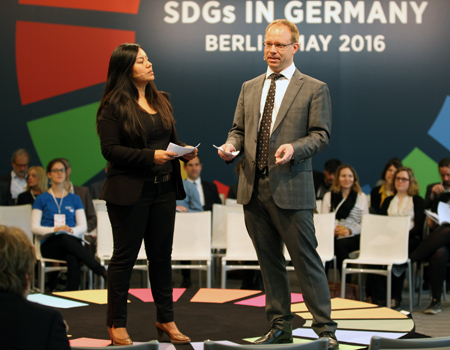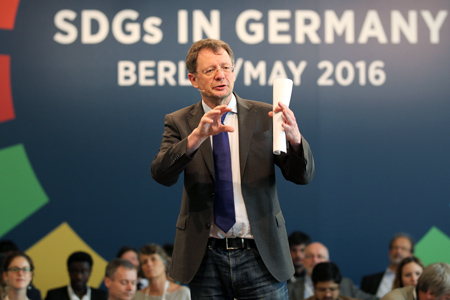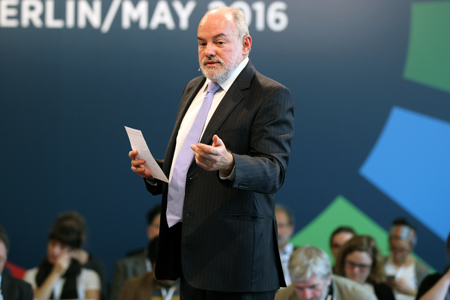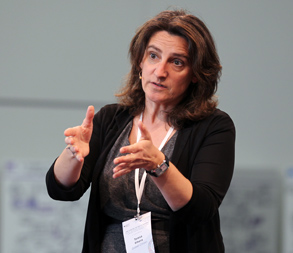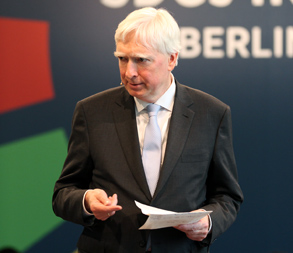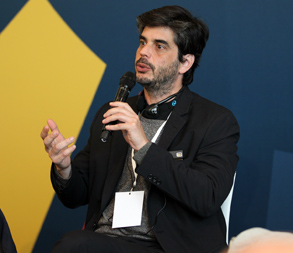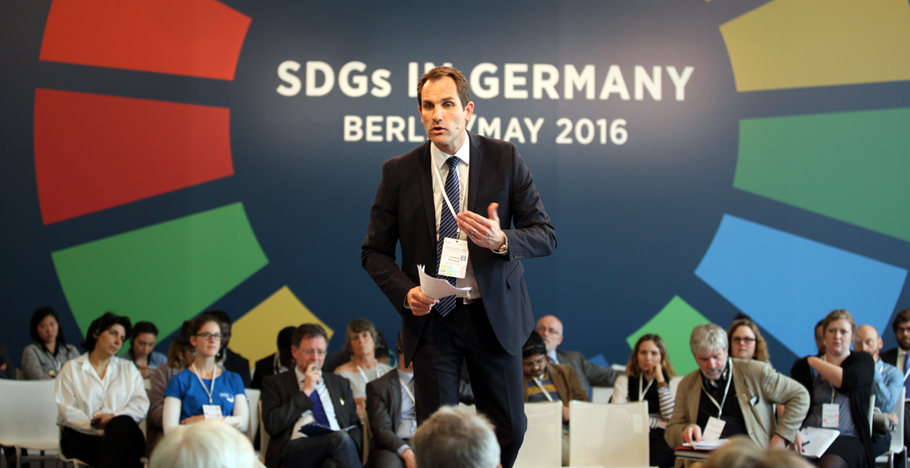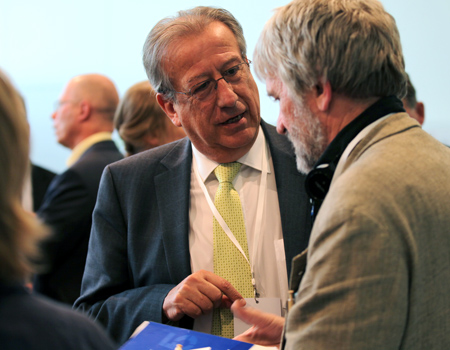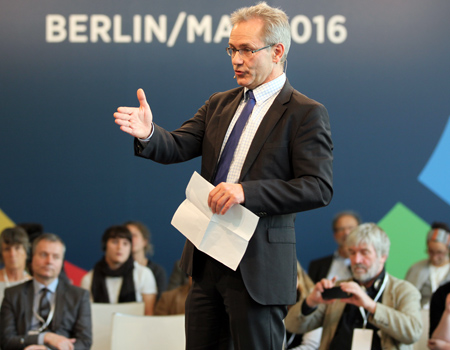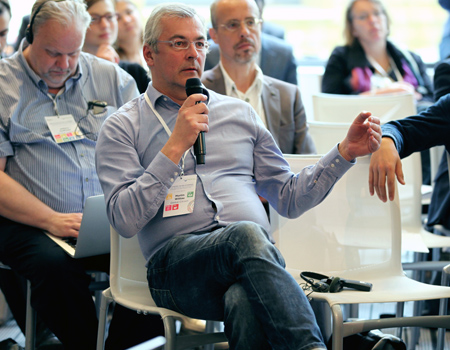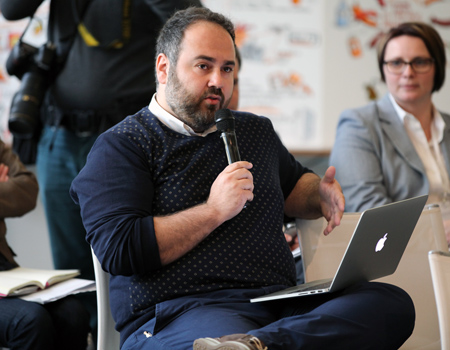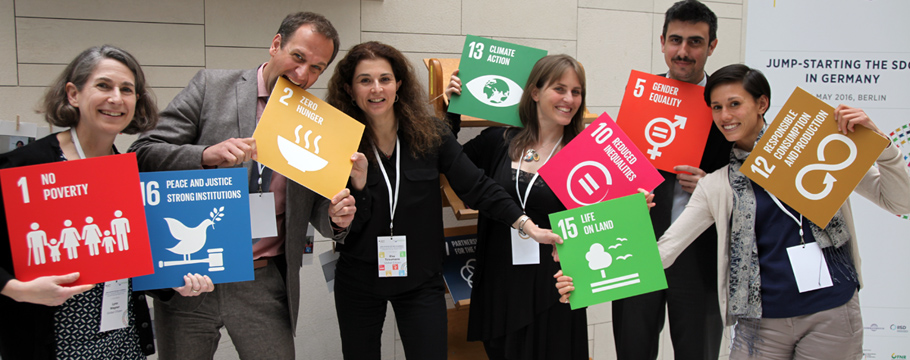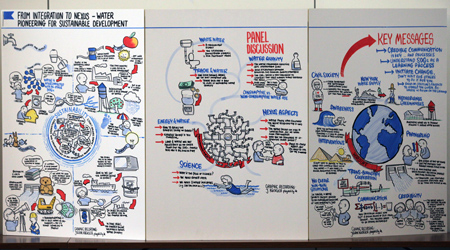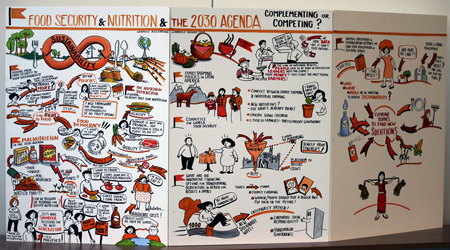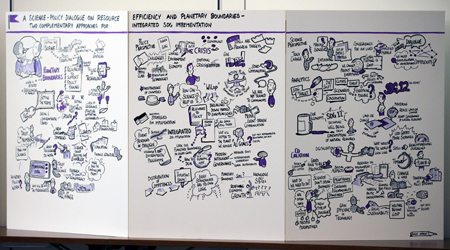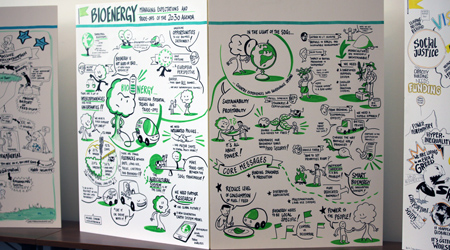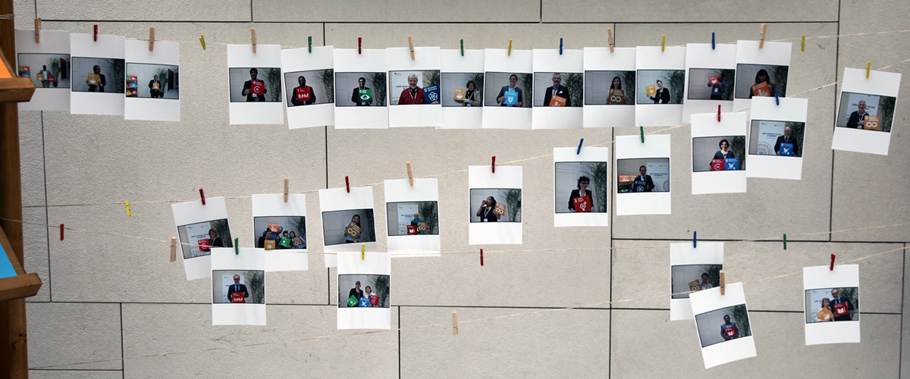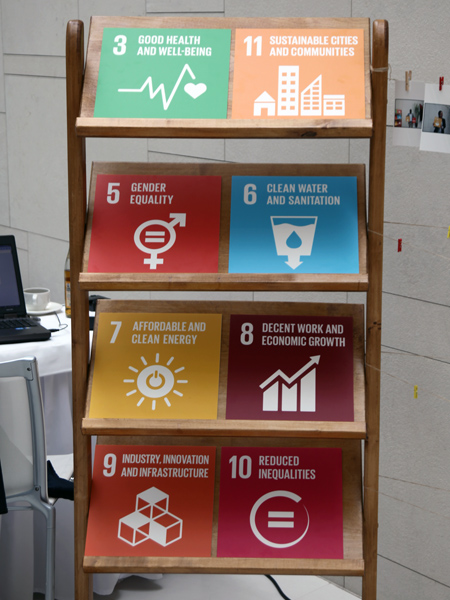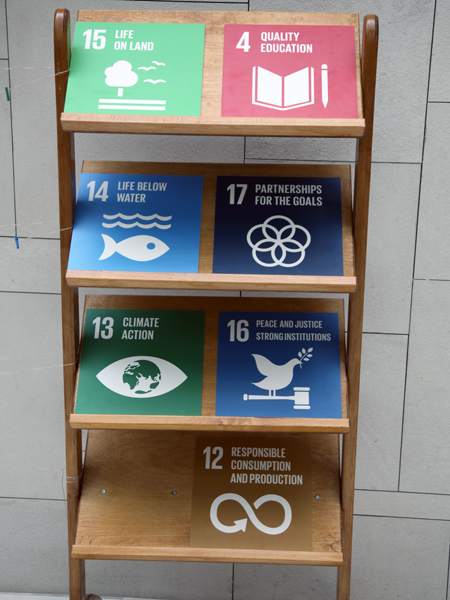Summary
On Wednesday morning, Conference participants attending “Jump-starting the SDGs in Germany: Natural Resources and Sustainable Consumption and Production” reviewed lessons from the previous day’s dialogue forums, and discussed implications of the Conference’s outcomes for SDG implementation at the international level and in Germany.
On key messages taken from the dialogue sessions, speakers stressed: the role of information in ensuring accountability and promoting policy coherence; and that partnering activities require building trust, flexibility and resilience. Speakers also urged policy makers to consider solutions beyond the market economy, and citizens to be more critical towards markets and policies that do not reflect people’s concerns.
Chair Alexander Müller, TEEB for Agriculture and Food and RNE, presented the Conference main messages, including that it is time for governments to act and that industrialized countries need to change for developing countries to start changing.
On implications of SDG implementation, speakers noted that: the 2030 Agenda is a new social contract which recognizes interdependence, planetary limitations, and shared prosperity; and consumers, voters and citizens are the main drivers of change.
Representatives of four German federal ministries commented on implications for SDG implementation in Germany, noting, among other issues, the need for: a more comprehensive discussion of necessary changes in German lifestyles; recognition that German development cooperation includes domestic actions to address impacts of domestic consumption and production patterns in other countries; a platform to involve academia and scientists in implementation; and feeding a growing world population, at low prices, while managing natural resources sustainably. Another speaker urged using the SDGs to influence policies that may have adverse effects, such as the EU’s Common Agricultural Policy.
Müller closed the meeting at 2:08 pm.
IISD Reporting Services, through its ENB+ Meeting Coverage, provided daily web coverage and a summary report from the Conference: Jump-starting the SDGs in Germany. Our report is available in HTML or PDF format.
Lewis Akenji, Institute for Global Environmental Strategies (IGES)
Christiane Grefe, Die Zeit, Germany
Heiner Benking, Institute for Sustainability in Education, Employment and Culture (INBAK), Germany
Florence Egal, Food Security and Nutrition expert, Italy
Hans Herren, Millennium Institute
Christiane Grefe, Die Zeit, Germany, and Klaus Töpfer, Institute for Advanced Sustainability Studies (IASS)
Douglas Williamson, Collective Leadership Institute
Lynn Wagner, IISD
Klaus Töpfer, IASS
Adolf Kloke-Lesch, Sustainable Development Solutions Network (SDSN)
Ulf Jaeckel, Chair of the 10 Year Framework of Programmes on Sustainable Consumption and Production (10YFP), Federal Ministry for the Environment, Nature Conservation, Building and Nuclear Safety (BMUB), Germany
Klaus Milke, Germanwatch
Christiane Grefe, Die Zeit, and Miriam Block, Netzwerk N, Germany
Ivonne Lobos Alva, with Jes Weigelt, IASS
Alexander Müller, TEEB for Agriculture and Food, and RNE
Rômulo Paes de Sousa, World Centre for Sustainable Development (RIO+ Centre)
Teresa Ribera, Institute for Sustainable Development and International Relations (IDDRI)
Stephan Contius, Head of the Division United Nations, Post-2015 Agenda and Cooperation with Developing and Newly Industrialised Countries, BMUB, Germany
Javier Surasky, Centro de Pensamiento Estratégico Internacional (CEPEI), Colombia
Christian Fronczak, Federal Ministry of Food and Agriculture (BMEL), Germany
Juan Mayr, Ambassador of Colombia to Germany
Volkmar Dietz, Federal Ministry of Education and Research (BMBF), Germany
Martin Wittau, Germany
Pavlos Georgiadis, We Deliver Taste
The IISD Reporting Services team holding their favorite SDGs. From L-R: Lynn Wagner, Stefan Jungcurt, Elsa Tsioumani, Eugenia Recio, Mike Muzurakis, and Olivia Freeman.
